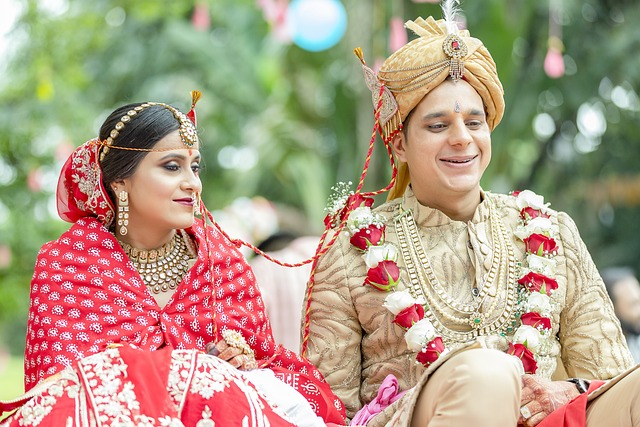In the UK, precise translation of marriage certificates is essential for legal processes, including visas, citizenship, and property transactions. The translations must be legally recognized, adhering to UK standards, and performed by accredited professionals with expertise in both languages and knowledge of the UK's legal system. These experts ensure the translations are a faithful representation of the original documents, capturing all nuances to avoid legal complications. Translators must be members of relevant associations, like ITI and CIOL, and their work should come with a declaration of accuracy and a signed certificate of translation, especially when dealing with marriages conducted abroad and requiring an apostille for Hague Convention member countries. This specialized service is crucial for UK residents whose translated marriage certificates need to be accepted by authorities domestically and internationally, ensuring the recognition of marital status across borders and facilitating smooth navigation through legal requirements.
navigating the intricacies of legal documentation can be a daunting task, especially when it involves international marriage certificates. In the UK, where legal processes often necessitate precise and professional translations, understanding the nuances of marriage certificate translation is paramount. This article delves into the critical aspects of obtaining a reliable translation for legal needs, outlining the essential steps and considerations for UK residents. From comprehending the legal landscape to identifying accredited translators, and ensuring accuracy and compliance, this guide will illuminate the best practices for marriage certificate translation in the UK. Key terms such as ‘marriage certificate translation UK’ are integral to navigating these processes effectively.
- Understanding the Necessity of Professional Marriage Certificate Translation for Legal Purposes in the UK
- Navigating the Legal Requirements for Marriage Certificate Translation in the UK
- The Role of Accredited Translators in Marriage Certificate Translation for UK Residents
- Ensuring Accuracy and Compliance: Best Practices for Marriage Certificate Translation Services in the UK
Understanding the Necessity of Professional Marriage Certificate Translation for Legal Purposes in the UK

In the UK, where legal documentation is paramount for various official processes, the translation of marriage certificates holds significant importance. When individuals marry and need to present their marriage certificate in legal proceedings or to governmental bodies within the UK, it is imperative that the document is accurately translated by a professional who specialises in certified translations. The necessity for such precision arises from the requirement that all official documentation is comprehensible to the relevant authorities, ensuring that no legal discrepancies or misunderstandings occur. A professional marriage certificate translation in the UK not only facilitates clear communication but also adheres to the stringent standards set by legal entities. This is crucial as errors in translation could lead to complications with visa applications, citizenship processes, or property transactions, where the marriage status of an individual is a critical factor.
Choosing a certified translator who is proficient in both languages and well-versed in the legal nuances of document translation is essential. These professionals are adept at providing translations that are legally recognized in the UK, ensuring that the marital status is validated across different jurisdictions. The translation must reflect all details present on the original certificate accurately, including names, marriage dates, and any other pertinent information, to avoid legal repercussions or delays in proceedings where the marriage certificate is required. Therefore, for individuals navigating the complexities of international legal processes within the UK, a professional marriage certificate translation is not just a formality but a critical step in ensuring that their marital status is legally acknowledged and respected.
Navigating the Legal Requirements for Marriage Certificate Translation in the UK

In the United Kingdom, legal documentation such as marriage certificates often necessitate translation for various purposes, including immigration, legal proceedings, or administrative processes. The process of translating a marriage certificate in the UK is governed by stringent legal requirements to ensure the translated document holds the same weight and authenticity as the original. Certified translations must be carried out by professional translators who are accredited and familiar with both the source language and English, with a special proficiency in legal terminology. These translators should ideally be members of a relevant association or have credentials verified by the UK’s Secretary of State, providing assurance that their work meets the necessary standards for official use. The translation must be accompanied by a statement of accuracy and a signed certificate of translation to affirm its authenticity, making it legally binding and acceptable by UK authorities. Additionally, if the marriage took place abroad, the translated document may also require an apostille or similar certification, depending on the country’s membership in the Hague Convention of 1961. This additional step further validates the translation for legal purposes within the UK, ensuring that individuals and couples can navigate these requirements with confidence and ease.
The Role of Accredited Translators in Marriage Certificate Translation for UK Residents

When UK residents require the translation of their marriage certificates for legal purposes, accredited translators play a pivotal role in ensuring the accuracy and legality of these documents. The process of marriage certificate translation UK is not merely a linguistic exercise but a critical step that often intersects with legal requirements. Accredited translators are proficient in the specific nuances of both the source and target languages, enabling them to provide precise translations that stand up to legal scrutiny. They adhere to stringent professional standards set by relevant bodies, such as the Institute of Translation and Interpreting (ITI) or the Chartered Institute of Linguists (CIOL), ensuring their work meets the high demands of legal frameworks. This commitment to quality is paramount when marriage certificate translations are used for immigration applications, property transactions, or international recognition of marital status.
The translation of a marriage certificate in the UK is a sensitive task that often involves not only a change of language but also a comprehension of different legal systems. Accredited translators are adept at navigating these complexities, employing their expertise to convey the authenticity and veracity of the original document. They are familiar with the Accepted Translations scheme of the Home Office and other regulatory bodies, ensuring that the translated marriage certificates are acceptable for use in various legal processes both within the UK and abroad. This level of professionalism and attention to detail is indispensable for individuals who need their marital status legally recognised across international borders, facilitating a seamless transition between legal systems and providing peace of mind for UK residents embarking on new chapters that necessitate official documentation in a different language.
Ensuring Accuracy and Compliance: Best Practices for Marriage Certificate Translation Services in the UK

When navigating the legal requirements that often accompany marriage, both within the UK and across international borders, the accuracy and compliance of official documents such as marriage certificates become paramount. In the UK, marriage certificate translation services must adhere to strict standards to ensure the integrity of personal information and legal standing. To guarantee precision in translations, reputable services employ expert linguists who are proficient not only in the relevant languages but also in legal terminology. These professionals understand the importance of capturing every detail from the original document, including dates, names, and legal stamps, without alteration. Furthermore, they are well-versed in the UK’s legal framework for document translation, which mandates that translations must be certified to be recognisably genuine and carry the same authority as the original. This is achieved through a series of checks and validations, including verification by qualified translators, proofreading by a second linguist, and a final authoritative stamp or seal that confirms the translation’s authenticity. Engaging such services ensures that individuals can present their marriage certificate translations with confidence to government bodies, legal institutions, and other official entities within the UK, facilitating a seamless process for those tied by legal obligations to present such documents in different languages.
In conclusion, when it comes to legal matters, the translation of a marriage certificate in the UK is not just a matter of language conversion; it’s a precise process that demands professional expertise. As outlined in this article, understanding the legal requirements for marriage certificate translation and the pivotal role of accredited translators are crucial steps for UK residents navigating this necessary procedure. By adhering to best practices for accuracy and compliance, individuals can ensure their translated documents are legally sound and respected by all relevant parties. For those requiring marriage certificate translation UK services, it is imperative to engage with reputable providers who specialise in legal document translations to avoid any potential issues that could arise from mistranslation or non-compliance. With the right professional assistance, your translated marriage certificate will serve its purpose effectively within the legal framework of the UK.
